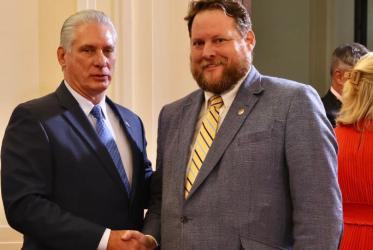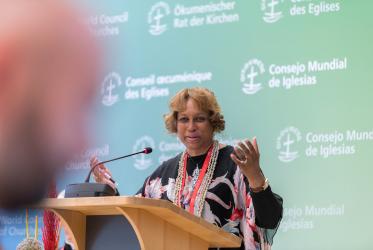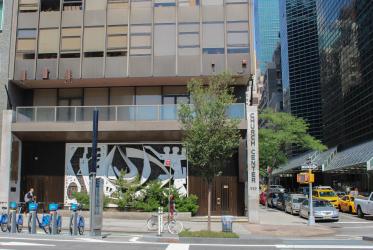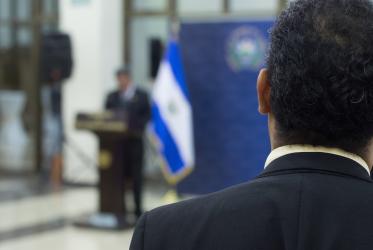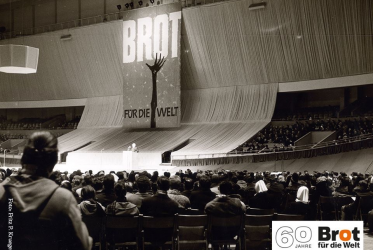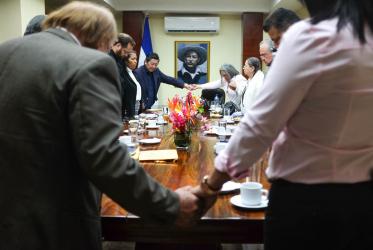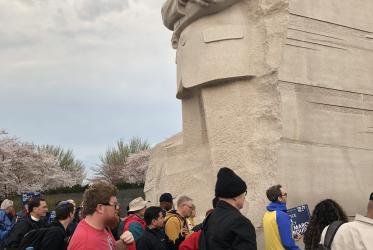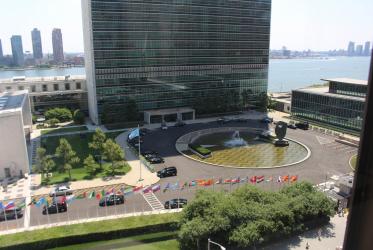Displaying 1 - 20 of 64
As UN assembly opens, prayers for children and young people
20 September 2023
In New York City, the spirit of Thursdays in Black is thriving
06 October 2022
WCC well-represented in Religions for Peace leadership
07 October 2019
#WCC70: Children in the Ecumenical Movement
20 December 2018
“Dear white Christians: what now?”
05 April 2018
WCC to co-host public event on migration and displacement at UN
17 January 2018

